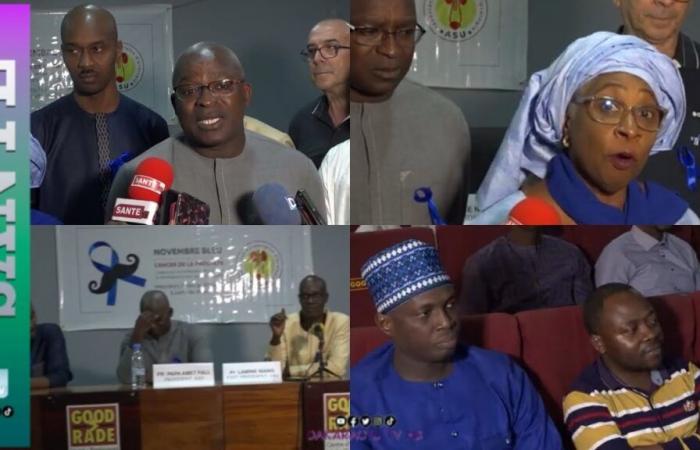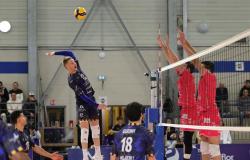On the sidelines of the international prostate cancer awareness campaign, the month of November was marked by a crucial meeting organized this Friday by the Senegalese Urology Association (ASU). The event, a post-graduate course, highlighted the major challenges of accessibility to hormonal treatments for men suffering from this cancer in Senegal. While the fight against female cancers is often at the center of health concerns, prostate cancer, which specifically affects men, still remains largely ignored, despite possible advances in prevention and treatment.
Prof. Papa Amet Fall, president of ASU, delivered an alarming message: although early diagnosis of prostate cancer allows significant chances of cure, an overwhelming number of patients are still diagnosed too late in Senegal. According to recent data, only 20% of prostate cancers are detected at an early stage, which can lead to curative treatment. The remaining 80% are often diagnosed at a locally advanced or metastatic stage, where treatment options, although effective, become extremely expensive and sometimes inaccessible.
“The means exist to treat these patients here in Senegal, but the costs are prohibitive. Treatment of advanced forms can cost up to one million CFA francs per month. And at that point, many people cannot can no longer afford to follow treatments, due to lack of coverage or financial support,” explains Professor Fall. The burden of these costs falls primarily on elderly patients, often retired and with limited purchasing power, who have little recourse in the face of such a devastating illness.
The scale of the problem is such that calls are being made to the Senegalese authorities to take concrete measures to make prostate cancer treatments more accessible, or even free. In this context, the president of LISCA (Senegalese League Against Cancer), Dr. Fatma Gueunoune, reaffirmed her support for Professor Fall’s advocacy: “It is urgent that the Senegalese State take up this issue seriously. “Prostate cancer treatment is expensive, and many patients cannot afford to pay for their care. We need financial support from the state to ease the burden on patients.”
Dr. Fatma Gueunoune highlighted the high costs of diagnostics, with exams such as MRI or CT scans costing up to 250,000 CFA, as well as the costs of hormonal treatments, often out of reach for retired men. LISCA, despite its efforts with telethons and its direct assistance to patients, cannot cope with the growing demand, and the State must intervene to guarantee equitable access to care.
“We call on the President of the Republic to act. If billions are allocated for the treatment of gynecological cancer, why not do the same for male cancers? Our neighbors have made cancer treatments free, it is time that Senegal is following suit,” insisted Dr. Gueunoune.
While the Senegalese state has already made efforts to support the management of female cancers, the management of male cancers, particularly prostate cancer, still seems to be relegated to the background. However, as Professor Fall recalled, “without treatment, the outcome is fatal. And the suffering is intolerable”. He called for a concrete response from the State to reduce the costs of these treatments, and stressed the importance of national funding to ensure that all patients can access the care they need.






